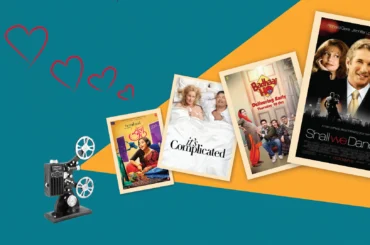In today’s evolving workplace, negotiation skills are more important than ever. This article explores how midlife professionals can learn from Gen Z’s confident approach to salary negotiation, leveraging their experience with modern tools and a focus on results to advance their careers.
Gone are the days when discussing salary was taboo and requesting work-life balance meant career suicide. As a 45-year-old professional recently told me, “I watched my Gen Z colleague negotiate a 30% raise within six months of joining, while I’ve been quietly accepting 5% annual increases for a decade.” This generational contrast in workplace negotiations isn’t just about boldness—it’s about a fundamental shift in how younger workers view their relationship with employers.
Generation Z has grown up in an era where information sharing is the norm, not the exception. This generation believes in a transparency revolution. On platforms like Reddit, twenty-somethings openly discuss their salaries, benefits, and workplace expectations. This transparency has created a powerful knowledge base that serves as leverage in negotiations.
For midlife professionals who were taught that salary discussions were impolite or even inappropriate, this openness can feel jarring. However, the benefits are clear: companies can no longer rely on information asymmetry to maintain wage gaps.
A comprehensive 2023 study from employment site Muse found that 53% of Gen Z and 46% of millennial workers always negotiate salaries for new job offers, up sharply from 33% and 37% respectively just a year prior. On the flip side, only 23% of Gen X and 15% of boomers consistently engage in salary negotiations.
Output over hours: The new workplace currency
Perhaps the most revolutionary aspect of Gen Z’s approach is their emphasis on deliverables rather than time spent. “I’m not paid for my time, I’m paid for my output,” is a statement I hear often from younger colleagues at the workplace. They seem to be clear about being able to deliver their targets with spending fewer hours in office. They believe that efficiency should be awarded and not penalized.
This output-focused mindset is something midlife professionals should embrace. Instead of measuring success by hours logged or years served, consider quantifying your value through concrete achievements. When negotiating, lead with results: “I’ve increased department efficiency by 35%” carries more weight than “I’ve been here for 15 years.”
The digital advantage
Gen Z leverages digital tools masterfully for workplace negotiations. They use Glassdoor for salary research, Blind for anonymous workplace insights, and LinkedIn for understanding market demand. For midlife professionals, adopting these digital tools isn’t just helpful—it’s essential.
Start by joining industry-specific online communities, following salary transparency hashtags, and building a strong digital presence. Understanding market rates and industry trends provides concrete data for negotiation conversations.
One of Gen Z’s most admirable traits is their ability to set clear boundaries while maintaining professional relationships. They’re comfortable saying no to extra work without promised compensation, and they view work-life balance as non-negotiable rather than earned.
The confidence equation
The key to Gen Z’s negotiation success isn’t just about tactics—it’s about mindset. They view career advancement as a natural progression based on value delivered, not time served. This confidence comes from understanding their worth in the market and being willing to advocate for it.
For midlife professionals, combining this confident approach with years of experience can be powerful. Instead of viewing younger colleagues’ tactics as entitled or aggressive, consider them as tools that can complement your extensive expertise.
The workplace is evolving, and successful negotiation strategies must evolve with it. For midlife professionals, learning from Gen Z doesn’t mean abandoning all traditional approaches. Instead, it means adopting the best of both worlds: combining decades of experience with new approaches to workplace advocacy.
The next time you see a younger colleague confidently negotiating their terms, don’t dismiss it as youthful audacity. Instead, take notes. They might just be showing us the future of workplace negotiations—one that values transparency, results, and clear boundaries. In this new world, experience combined with modern negotiation tactics could be your most powerful career asset.
Quick tips to ace your negotiation skills:
· Research market rates for your position.
· Document your achievements in quantifiable terms.
· Practice discussing compensation with trusted peers.· Most importantly, remember that advocating for your worth isn’t just about personal gain—it’s about contributing to a more equitable workplace for all generations.





